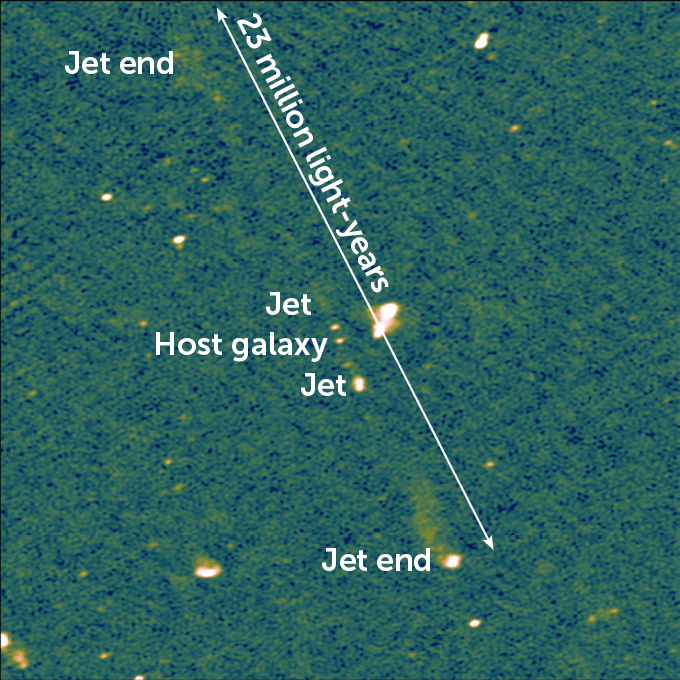The opposing fountains of plasma and particles spanning 23 million light-years are the longest pair of black hole jets ever seen. That’s far enough away to affect the evolution of the universe on a cosmic scale, astronomers report Sept. 18. Nature.
“Traditionally, astronomers believed that all jets remain inside, or at least very close to, their host galaxy,” astrophysicist Martijn Oei of Caltech said at a Sept. 16 press conference. “We present evidence that supermassive black holes not only affect galaxies, but also the cosmic web that surrounds them.”
Astronomers think that all massive galaxies harbor a giant black hole at their center, and some of these galaxies emit high-energy sources of charged plasma into space. Those jets affect the structure and evolution of the galaxy in which they are embedded, slowing or even shutting down star formation. (SN: 10/13/23).
The newly discovered pair, nicknamed Porphyrion after a rebel giant in Greek mythology, were spotted in observations by LOFAR, a network of radio wave detectors in the Netherlands. Porphyry’s incredible size—it outshines the previous record holder by about 7 million light-years—hints that its influence may exceed the limits of ordinary galaxies.

The following observations suggest that Porphyry’s home galaxy is embedded in a filament of the cosmic web, the tangled scene of gas and galaxies where most of the universe’s ordinary matter resides. (SN: 3/6/23). Jets also existed in an early era of the universe’s history, about halfway through its current era, when the strands of the cosmic web were closer together than they are today. Oei and colleagues calculate that jets can travel two-thirds of the way through the voids between cosmic strings.
And Porphyrion is not alone. A citizen science effort to identify other large black hole jets has revealed more than 10,000 that span roughly 3 million light-years or more, though none as large as Porphyrion.
“Those massive black hole systems may be less rare than we thought,” Oei said. “So they may have a bigger impact than we expected.”
#Meet #Porphyrion #largest #pair #black #hole #jets
Image Source : www.sciencenews.org